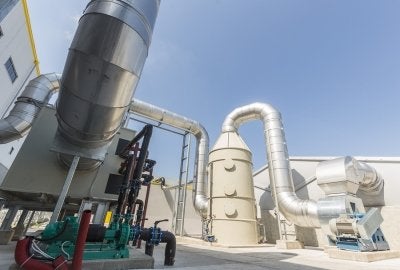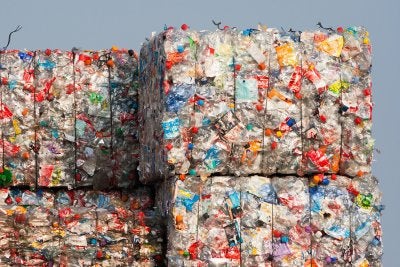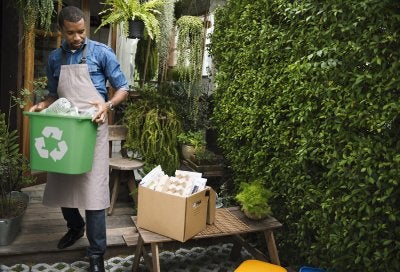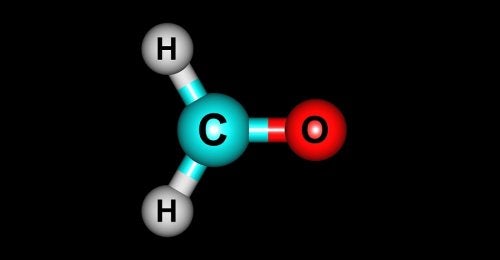-
The Benefits of Lifecycle Thinking
Lifecycle thinking is a term that is used to describe waste management practices that are designed to encourage individuals and businesses to set up sustainable recycling program. In this video from waste management, you will learn about how lifecycle thinking can benefit your recycling serving Atlanta . By taking a look at the larger picture, you will have a better idea of the impact of your recycling program.
From metal recycling to plastic recycling and more, there are many materials that can now be easily recycled and transformed into new goods. If you have been interested in learning more about how to recycle effectively, you may want to educate yourself on lifecycle thinking and how this philosophy can impact your recycling goals.
-
Answering FAQs About Industrial Solid Waste
If you own or manage an industrial plant or factory, your waste management will typically be monitored by the EPA or another federal organization. To make sure that your waste management procedures comply with federal regulations, you should work with a company that specializes in managing industrial waste near Atlanta . Your waste disposal company can help you create onsite solutions and collection plans for all of your solid waste. Let’s answer some of the most commonly asked questions that business owners have about their industrial solid waste.

What is the definition of industrial solid waste?
In order to properly manage your industrial solid waste, it is helpful to understand how this category of waste is defined. Typically, industrial solid waste is categorized as any waste product that is in a solid, partially solid, or enclosed gaseous state after it has been generated. In order for waste to become labeled as industrial solid waste, it must be produced during an industrial or manufacturing process.
Are there methods for reducing industrial solid waste?
Many industrial businesses are interested in reducing the amount of solid waste that they create during their daily operations. Solid waste reduction can help to make a company’s manufacturing process more efficient, and waste reduction is also environmentally friendly. To reduce solid waste production, it may be possible to install new machinery that is designed to be more efficient, using fewer resources. Proper facility maintenance can also go a long way towards reducing solid waste in an industrial setting.
How can solid industrial waste be managed?
An experienced industrial waste management company can provide you with disposal and pickup services that will help to streamline your solid industrial waste management. Rather than relying on onsite services for proper containment and disposal, you can hire your waste management professionals to pick up, sort, and dispose of your solid waste using the latest waste management technology. Outsourcing your solid industrial waste management will help you ensure that your waste management plan complies with federal regulations.
-
The Effects of Plastic Bags on Marine Life
Trash bags and other forms of plastic waste have a significant impact on the safety and wellbeing of ocean creatures. In this video from National Geographic, you will take a dramatic look at what is like for a marine creature to become trapped in a plastic bag. With proper waste management in Atlanta, you can do your part to protect our oceans.
If you would like to set up plastic recycling services for your home or business, be sure to get in touch with a qualified recycling center that services your local area. Your waste management professionals can help you create an ocean-conscious recycling program that helps to preserve our marine life for many generations to come.
-
The Basics of Recycling
Are you thinking about beginning a company-wide program for recycling in Atlanta? If so, then you are on your way toward reducing waste and promoting a greener workplace . During this type of transition, it’s common for people to wonder about how materials are recycled. Watch this video to learn the basics of recycling.
The recycling process involves collecting waste products and then breaking them down into materials that can be used to create new products. Each type of recyclable product is broken down in its own way, and most recycling plants use either a single stream or dual stream system. Dual stream involves the division of paper and anything else in the recycling bin, while single stream requires sorting a mixture of recyclable products.
-
Reducing Paper Use in the Office
Instituting a recycling program for your office is an excellent way to make your business more environmentally friendly. However, taking steps to reduce your need for waste management and recycling in Atlanta is another approach to promoting a greener office. Watch this video for tips on reducing the amount of paper that your office uses.
The average office worker goes through about 1.5 pounds of paper each day, which is an amount that can add up quickly. In addition to using recycled paper and recycling bins in your office, you can make your business greener by reducing your paper use and going digital as much as possible. Also, instead of printing off articles, read them on your computer or mobile device. When you do need to print something, print only the pages that you absolutely need to reduce your paper use.
-
Steps for Recycling Industrial Hazardous Waste
Recycling hazardous waste is an important part of industrial waste management that helps conserve resources and save on manufacturing costs. If you are interested in recycling industrial hazardous waste near Atlanta, then you can benefit from becoming familiar with the following steps:

Determine Waste Regulations
The first step in properly recycling hazardous waste is to learn about the EPA waste disposal regulations for the material that you are working with. Refer to the EPA’s regulatory definitions to determine what category your waste material falls under.
Consider Cost-Accounting
You will find that there are many cost-accounting tools available to companies. These tools can help you track your company’s resource use and improve its resource efficiency. Cost-accounting tools usually consider factors like recycling activities, pollution prevention measures, energy savings, and the reduction of greenhouse gas emissions.
Choose a Facility
Once you are ready to begin the industrial waste recycling process, the next step is to locate a responsible recycler. The recycling facility should have a history of permit and environmental compliance, be financially sound, and employ responsible waste management practices. Also, learn if the facility has adequate pollution liability insurance, provisions for any potential closure and cleanup costs, and an effective drop-off and tracking protocol.
Confirm Recycling Legitimacy
Ensuring that your industrial hazardous waste will be properly handled is an important part of the recycling process. You should confirm that the recycling company is legitimate and has well-maintained records of recycling transactions. Also, determine if the secondary material can be effectively used as claimed and if it is being used in amounts more than necessary.
Track Recycling Progress
You have 2 good reasons to measure your success when it comes to recycling industrial hazardous waste. First, monitoring and reporting your company’s recycling progress can have a beneficial impact on its public image. Second, keeping track of your recycling performance provides you with information to share with stakeholders and investors to demonstrate your company’s adherence to environmental regulations.
-
The Importance of Commercial Recycling
Does your company practice recycling in Atlanta? If not, then you may be interested in learning about the benefits that commercial recycling programs offer business owners. Continue reading to learn about the importance of commercial recycling.

Protecting the Environment
Recycling benefits the environment in many ways. By recycling materials instead of throwing them in the waste bin, for example, your company can help reduce the amount of trash sent to local landfills. Also, recycling lessens the demand for raw materials that would otherwise need to be refined or mined. In this way, recycling can help reduce energy needs and the impact of mining and manufacturing on air quality and the environment.
Reducing Operational Costs
Instituting a commercial recycling program for your company is more than good for the environment because you can save on waste collection costs by tossing more of your waste into recycling bins. By using containers for metal, paper, and plastic recycling, you can potentially cut down on the number of dumpsters or trash pickups that your company requires.
Improving Resource Efficiency
When companies begin a recycling program, it’s common for areas of unnecessary waste to come to light. By paying more attention to the type and amount of materials that you use and adjusting your practices, your company may be able to spend less money on supplies and waste collection.
Enhancing Company Image
Going green is an excellent way to improve the way that the public views your company. For this reason, you can benefit from conducting an energy audit of your facility and learning where your biggest areas of improvement are. Then, you can enhance your company’s public image by tracking and reporting the progress of your green programs.
Boosting Employee Satisfaction
With the growing awareness of the impact of recycling on the environment, more and more people expect to be able to recycle in the workplace. Beginning recycling programs and similar ventures are excellent ways to improve employee satisfaction by helping them help their environment.
-
Ideas for Making Your School a Greener Place
Are you looking for ways to cut down on your school’s waste near Atlanta? If so, then the good news is that there are many ways in which schools can improve their waste management practices and be more environmentally friendly. Continue reading for tips on making your school a greener place.

Conduct an Audit
You already know that you want to make your school more environmentally friendly, but knowing where to start can be overwhelming and confusing. For this reason, it’s a great idea to start with energy and waste audits. You can conduct these audits yourself or work with a professional company. The audit process will give insight into your school’s biggest problem areas.
Speak with Staff
There is a good chance that you’re not the only one who wants to work for a greener school. For this reason, you can benefit from speaking with teachers, custodians, and other staff members to learn their opinions regarding potential areas for improvement and which green initiatives they would be interested in participating in.
Include the Kids
If you work with children, then you already know how enthusiastic and outspoken they can be when it comes to learning about and protecting the environment. Include students in the process of making your school greener by asking for their input and letting them help with or even lead programs for educating others about recycling facts, setting up recycling bins, planting school gardens, and starting green clubs.
Put up Signage
Your school may already be greener than you would guess. It’s common for institutions to make use of energy-efficient and environmentally friendly products and practices, and it’s also common for only a handful of people to be aware of these green initiatives. Learn what your school already does to be green and spread the word through signs. Also, post educational signage that informs others of any new green initiatives that your school adopts and what they can do to help.
-
Where Is Formaldehyde Found?
When it comes to properly managing industrial waste near Atlanta , knowing where to find specific materials is essential. Formaldehyde, for example, is used in a broad range of products, and exposure to this chemical can cause irritation of the eyes, nose, skin, and throat. Also, high levels of formaldehyde exposure may cause some cancers. For these reasons, understanding where you might encounter this chemical is an important part of the waste management process.
Formaldehyde can be found in resins that are used in the manufacturing of composite wood products such as fiberboard, particleboard, and hardwood plywood. Insulation, building materials, pesticides, and fertilizers can also contain this chemical, along with products like permanent press fabrics, glues, coatings, paints, paper products, finishes, and lacquers. Waste from some cosmetics, medicines, and consumer products like fabric softeners and dishwashing liquids may contain preservatives that use formaldehyde. Finally, formaldehyde is found in cigarette smoke and emissions from unventilated fuel-burning appliances such as kerosene space heaters and gas stoves. Understanding these facts about where to find formaldehyde can improve your company’s waste management and trash removal practices.

RECENT POSTS
categories
- Uncategorized
- Waste Management Atlanta
- Waste Disposal and Recycling
- Hazardous Waste Disposal
- Chemical waste removal
- solid waste removal
- R3 Program
- Sustainable Organizations
- Sustainable Waste Removal
- Commercial Waste Removal
- Materials Management Program
- Dumpster Rental
- Roll Off Dumpsters
- Construction Site Waste Removal
- Sustainability
- Recycling in Atlanta
- Industrial Recycling
- Industrial Waste Removal Services
- Southern Waste & Recycling
- Waste Removal Atlanta
- Waste Specialists
- Atlanta
- Infographic
- Front Load Dumpsters
- Rear Load Dumpsters
- Reusable Electronics
- Dump Truck Atlanta
- Recyclable Electronics
- Trash Compactors
- Recycling
- Recycling Program
- Office Recycling
- Metal Recycle
- Electronic Waste
